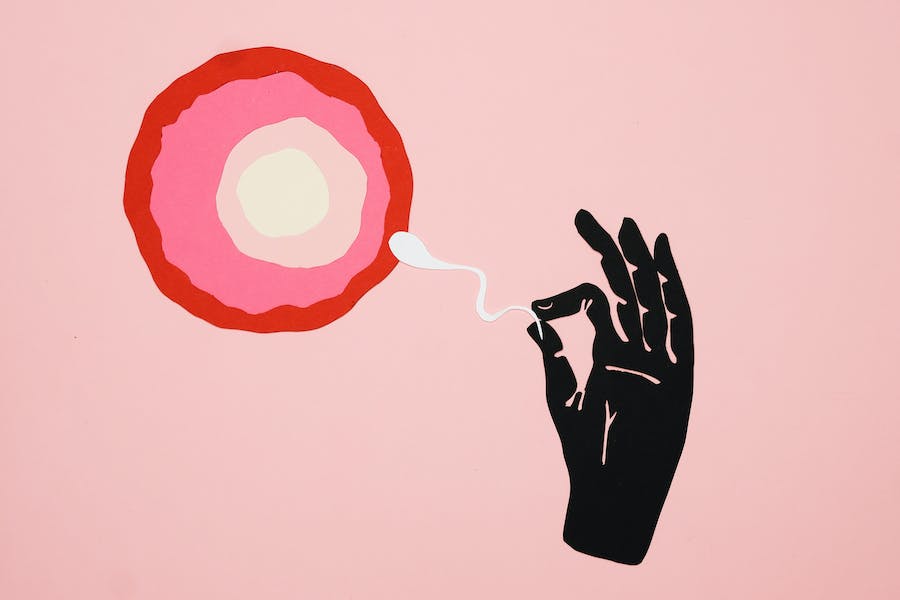What Are The 3 Main Causes Of Infertility?
Share
Infertility can be a challenging topic for many couples, with emotional, physical, and even financial implications. According to the NHS, around 1 in 7 couples may have difficulty conceiving. Despite its prevalence, there remains a cloud of misconceptions and misunderstanding around its causes.
Delving into the subject, we discover that infertility can be attributed to a myriad of factors. This article will focus on three primary causes, aiming to shed light on the intricacies and complexities of this issue.
1. Ovulatory Disorders
What Is It?
Ovulatory disorders pertain to conditions that prevent or hinder the ovary from releasing an egg, making conception difficult. This is one of the most common reasons behind infertility in women.
Causes:
- Polycystic Ovary Syndrome (PCOS): PCOS is a condition in which the ovaries produce an excess of androgens, male hormones, which can interfere with egg production. Women with PCOS often have irregular or absent periods.
- Hypothalamic Dysfunction: The two hormones responsible for stimulating ovulation, follicle-stimulating hormone (FSH) and luteinising hormone (LH), are produced by the hypothalamus. Factors like stress, excessive weight loss, or gain can disrupt their balance, leading to ovulatory issues.
- Premature Ovarian Failure: This refers to the loss of normal ovarian function before the age of 40. It can be due to genetic factors or autoimmune diseases.
Treatment:
Treatments typically involve fertility drugs that regulate or induce ovulation. In some cases, assisted reproductive techniques, such as in vitro fertilisation (IVF), might be recommended.
2. Male Factor Infertility
What Is It?
Male factor infertility pertains to conditions where the male partner has issues with sperm production or function, hampering the ability to fertilise the egg.
Causes:
- Varicocele: This is a swelling in the veins that drain the testicle, leading to reduced quality of the sperm.
- Infection: Some infections can interfere with sperm production or cause scarring that blocks the passage of sperm. Examples include some sexually transmitted infections, such as gonorrhoea or HIV.
- Ejaculation Issues: Conditions like retrograde ejaculation, where semen enters the bladder instead of emerging out through the penis, can affect fertility.
Treatment:
Treatments can range from surgeries to correct issues like varicoceles to medications that improve sperm count. In situations where natural conception is challenging, methods like intrauterine insemination (IUI) or IVF may be beneficial.
3. Structural Issues and Blockages
What Is It?
Structural problems relate to the physical barriers that prevent the sperm from reaching the egg or prevent the fertilised egg from implanting itself into the uterus.
Causes:
- Fallopian Tube Damage or Blockage: This usually results from inflammation of the fallopian tube, commonly due to infections like chlamydia or pelvic inflammatory disease.
- Endometriosis: This occurs when tissue similar to the lining inside the uterus grows outside the uterus, which can influence the function of the ovaries, uterus, and fallopian tubes.
- Uterine or Cervical Abnormalities: These can include problems with the opening of the cervix or polyps in the uterus.
Treatment:
Depending on the cause, treatments can range from surgery to remove blockages to specialised assisted reproductive techniques that bypass the need for sperm or egg to travel through problematic areas.
Fertility Plus, among other reputable clinics, has underscored the importance of comprehensive diagnosis and personalised treatments.
Given the diverse causes and factors contributing to infertility, a one-size-fits-all solution is seldom effective. By understanding the root causes of infertility, couples can embark on a journey tailored to their unique needs, giving them the best chance at conceiving.
In conclusion, while these three causes underscore the main reasons behind infertility, it’s crucial to remember that every individual’s journey is unique. Seeking professional advice and support can make navigating this challenging path a bit more manageable.

















